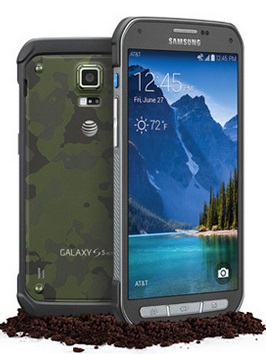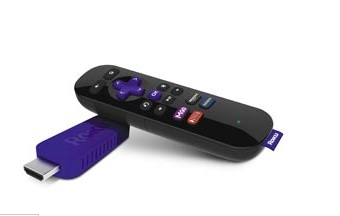My Appearance on WGST's "The Sully Show" 6/27/14 Talking Tech
 Friday, June 27, 2014 at 12:06PM
Friday, June 27, 2014 at 12:06PM Rick and Sully talk the tech topics of the week - and now it looks like the government will need a warrant to search your mobile phone.
Have a listen:
Current tech topics
Google i/o conference going on this week in San Francisco
An Android update, "the ultimate smart TV," wearable gadgets and so-called smart home devices are just some of the innovations Google showed off today as its two-day developers conference, known as Google I/O (for Input/Output), got underway in San Francisco.
In recent years, the conference has focused on smartphones and tablets, but this year Google's Android operating system is expected to stretch into cars, homes and smartwatches.
The head of Google's Android division, Sundar Pichai, took the stage first to talk about the growing reach of Android phones and tablets. He said Android now has one billion users, who take 93 million selfies, walk 1.5 trillion steps, and check their phones 100 billion times each day. Android app installations rose 236 percent over last year, he said.
Dave Burke, director of engineering for Android, described highlights of Google's latest Android operating system update, referred to as "L."
One new security feature called personal unlocking will allow a device to automatically unlock when its owner picks it up, by recognizing a familiar Bluetooth signal and other clues. If a stranger picks it up, it will stay locked.
It will have a battery saving feature that Burke says can extend battery life by 90 minutes, and 3D graphics capability for an immersive gaming experience.
Then came the much-anticipated announcement of Android's expansion into wearables. Google engineering director David Singleton introduced Android Wear, the software that will run smartwatches like the LG G and the Samsung Gear, which go on sale starting today on the Google Play store. Another model, the Moto 360, will be coming from Motorola later this summer.
Android Wear will enable developers to offer health tracking, navigation apps, voice-activated ride sharing requests, step-by-step cooking instructions and other functions in an even more portable format.
The company also announced Android Auto, which will bring many popular features of smartphones to new car models from more than 40 automakers
Report: Apple having pro athletes like Kobe Bryant test iWatch
-Does Sully want an iWatch?
Following recent news that Apple is prepping an iWatch for release this fall, a new report claims that the company has enlisted several professional athletes to test the still-unannounced device.
Top players from U.S. professional sports leagues, including Major League Baseball (MLB), the National Hockey League (NHL) and the National Basketball Association (NBA), are testing the device's "fitness capabilities in intense training environments," according to 9to5Mac.
Among the athletes testing the iWatch are Lakers star Kobe Bryant and Los Angeles Kings player Dustin Brown. In addition to citing sources with knowledge of the collaboration, the report said Bryant was seen on Apple's Cupertino, Calif. campus last month to meet with the company's design chief Jony Ive.
While Apple appears to be covering all of its bases by involving nearly every professional U.S. sports league to test its new device, it's easy to see why the company is singling out Bryant in particular.
Facebook speeds up app after a trip to Africa
Facebook this week rolled out an update to its Android app that adds some new options for liking and tagging posts, but the social network also provided a sneak peek into how a team trip to Africa helped boost apps speeds for users around the globe.
Within the new update, Facebook added the ability to "Like" posts, photos, and Pages when you'reoffline; remove tags you've created; remove tags of yourself that your friends have created; and turn post notifications on and off, in addition to improvements for speed and reliability.
Facebook sent a team of product managers and engineers to Africa, where mobile performance doesn't quite match up with service in the U.S. - from network connections to actual devices.
The result of Facebook's trip? Its engineers and product managers came up with four key areas where they could tweak its mobile app a bit: Performace, data efficiency, networking, and the size of the application.
Facebook's modifications to the application's loading process involved tweaking how features get loaded within the app — on single-core mobile devices, this presented a bit of a bottleneck as the smartphones struggled to churn up a bunch of processes simultaneously. Facebook also tweaked the loading process for News Feed stories to more quickly deliver cached content (for those on crappy networks). Together, these two modifications "reduced start times by more than 50 percent in the six months following the trip to Africa," Sourov wrote.
China Builds Artificial Islands In South China Sea
Sand, cement, wood, and steel are China's weapons of choice as it asserts its claim over the Spratly Islands in the South China Sea. China, the Philippines, Malaysia, Vietnam, Taiwan, and Brunei have sparred for decades over ownership of the 100 islands and reefs, which measure less than 1,300 acres in total but stretch across an area about the size of Iraq. In recent months, vessels belonging to the People's Republic have been spotted ferrying construction materials to build new islands in the sea. Pasi Abdulpata, a Filipino fishing contractor who in October was plying the waters near Parola Island in the northern Spratlys, says he came across "this huge Chinese ship sucking sand and rocks from one end of the ocean and blasting it to the other using a tube."
Artificial islands could help China anchor its claim to waters that host some of the world's busiest shipping lanes. The South China Sea may hold as much as 11 billion barrels of oil and 190 trillion cubic feet of natural gas, according to a 2013 report by the U.S. Energy Information Administration. China has considered the Spratlys—which it calls Nansha—part of its territory since the 1940s and on occasion has used its military might to enforce its claim. In 1988 a Chinese naval attack at Johnson South Reef, in the northern portion of the archipelago, killed 64 Vietnamese border guards.
 640am WGST,
640am WGST,  The Sully Show,
The Sully Show,  tech segment in
tech segment in  Google,
Google,  WGST,
WGST,  radio,
radio,  tech segment
tech segment 



